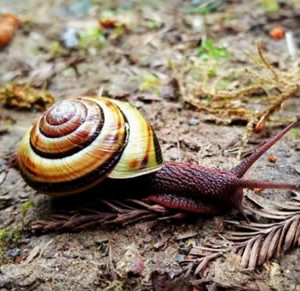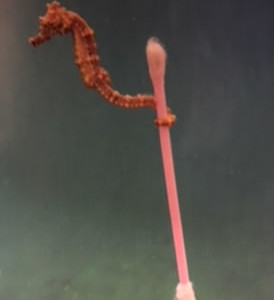Finding Joy and Compassion
from Yoga Journal article by Pema Chodron
 We tend to have an earnest seriousness about everything in our lives. A joyful mind is very ordinary and relaxed. When you aspire to lighten up, you begin to have a sense of humor. Your serious state of mind keeps getting popped. Another basic support for a joyful mind is curiosity: paying attention-taking an interest in the world around you. Happiness is not required but being curious without a judgmental attitude helps. If you are judgmental, try being curious about that.
We tend to have an earnest seriousness about everything in our lives. A joyful mind is very ordinary and relaxed. When you aspire to lighten up, you begin to have a sense of humor. Your serious state of mind keeps getting popped. Another basic support for a joyful mind is curiosity: paying attention-taking an interest in the world around you. Happiness is not required but being curious without a judgmental attitude helps. If you are judgmental, try being curious about that.
Curiosity encourages cheering up-So does simply remembering to do something different. We are so locked into the sense of burden-Big Deal Joy and Big Deal Unhappiness-that it is sometimes helpful to just change the pattern. Anything out of the ordinary will help. Just something against your usual habits. Walking a different path.
Noticing a tiny creature in nature can be a meditative experience. There is magic in even the smallest creation.
Drowning in Plastic
 Many of mankind’s inventions tend to show their negative side over time. Plastic is one of those inventions. In the June issue of National Geographic, this disaster is destroying wildlife, ecosystems, and polluting our waters. The problem is worse in developing countries where dump sites and trash collection is not available.
Many of mankind’s inventions tend to show their negative side over time. Plastic is one of those inventions. In the June issue of National Geographic, this disaster is destroying wildlife, ecosystems, and polluting our waters. The problem is worse in developing countries where dump sites and trash collection is not available.
More than 40 percent of plastic is used just once. The working life of a plastic bag is about 15 minutes. There are about 9 million tons added to our oceans each year. Animals eat it, get stuck in it and die from it. Plastic is turning the ocean into a minefield. It is time to start looking at ways to cut down our use of plastic and recycle as much as possible. Virtually half the plastic ever manufactured has been made in the last 15 years. In the United States only about 9 percent of plastic is recycled.
We have great room for improvement. Norway recycles 97 percent of its plastic bottles. It takes little effort by many people. We are lucky to be able to recycle plastic right at our curbs.
 Six Easy Things You Can Do to Reduce Plastic
Six Easy Things You Can Do to Reduce Plastic
- Give Up Plastic Bags-bring reusable bags to the store. Keep a couple in your trunk. In Denmark, the average person uses 4 per year. In the U.S. about one bag per every person is used per day.
- Skip Straws-Americans toss 500 million plastic straws per day, or about 1.5 per person per day.
- Pass Up Plastic Bottles-Invest in a refillable water bottle. Some even have filters. Around the world about a million plastic beverage bottles are sold every minute.
- Avoid Plastic Packaging-By bar soap instead of liquid. Avoid buying produce sheathed in plastic. Give up plastic cups and plates.
- Recycle What You Can-In the U.S. we are only recycling about 9 percent of our plastic.
- Don’t Litter-Worldwide, 73 percent of trash found on beach is plastic bottles.
To ride currents, seahorses clutch drifting seagrass and other natural debris. In the polluted waters of Indonesia, this seahorse latched on to a plastic cotton swab. This photo really got to me.

I just bought a bracelet for $20.00 to raise money toward the efforts to clean up our oceans by volunteers. Here is their link: www.4ocean.com
Recipe of the Summer
Lemon-Blueberry Dutch Baby
 Like a giant popover, a Dutch baby emerges from the oven puffed, golden and looking spectacular. It’s an easy brunch option.
Like a giant popover, a Dutch baby emerges from the oven puffed, golden and looking spectacular. It’s an easy brunch option.
Place rack in middle of oven. Preheat to 425 degrees. Combine 1 cup milk, ¾ cups flour, 2 Tbsp granulated sugar, ½ tsp salt, 4 large eggs and zest of 1 lemon in a blender, blend until smooth.
Place 4 tbsp butter in a heavy, ovenproof 10 -12 “skillet. Place pan in oven 3-5 minutes to melt butter and swirl to coat the pan. Pour batter into pan. Bake 17-20 minutes or until puffed and golden.
Remove from oven; sprinkle with ¾ cup fresh blueberries. Sift powdered sugar over top. Garnish with mint sprigs if desired. Serve with ½ cup lemon curd available in stores in the condiment aisle. Serves 4-6.
Find Your Groove
By Chrissy Carter, Yoga Journal June, 2018
Want to break old habits that are no longer serving you and solidify new ones that’ll boost your health and happiness? The secret is cultivating discipline, compassion, and patience. Even when doing Yoga.
Most of us continually strive to move through life more mindfully. Yet sometimes, despite our best efforts we run into obstacles and react in ways that don’t serve us. We vow to cut back on sugar, then cave at the sight of cookies; we get down on ourselves for playing comparison game when looking at social media. Often these roadblocks are tied to our mental and emotional grooves, or habits, called samskaras in Sanskrit. We find ourselves falling back into the same habits time and time again.
Whether conscious or unconscious, positive or negative, samskaras up our conditioning and influence how we respond in certain situations. Changing these deeply integrated patterns can be difficult-even if those patterns cause us pain. The good news is that we can use our yoga practice to examine our samskaras, identify what may be getting in the way of realizing our best intentions, and work with what we uncover.
By observing our reactive patterns during yoga and meditation, we’re better able to recognize when we react mindlessly in real life-and in turn, consciously shift or feelings, thoughts, emotions, moods, and behaviors. When you fail at something, are you kind to yourself? Do you beat yourself up? Can you try again even when you feel like giving up?
The most common roadblocks that people struggle with are self-criticism, frustration, and lack of willpower.
This Yoga sequence that is designed to help if you struggle with willpower will help work through roadblocks to break patterns that don’t serve you.
 Chair Pose
Chair Pose- Angle Pose
- Downward Facing Dog
- Plank Pose
- Side Plank Pose

Life isn’t about inventing yourself, it’s about creating yourself.

